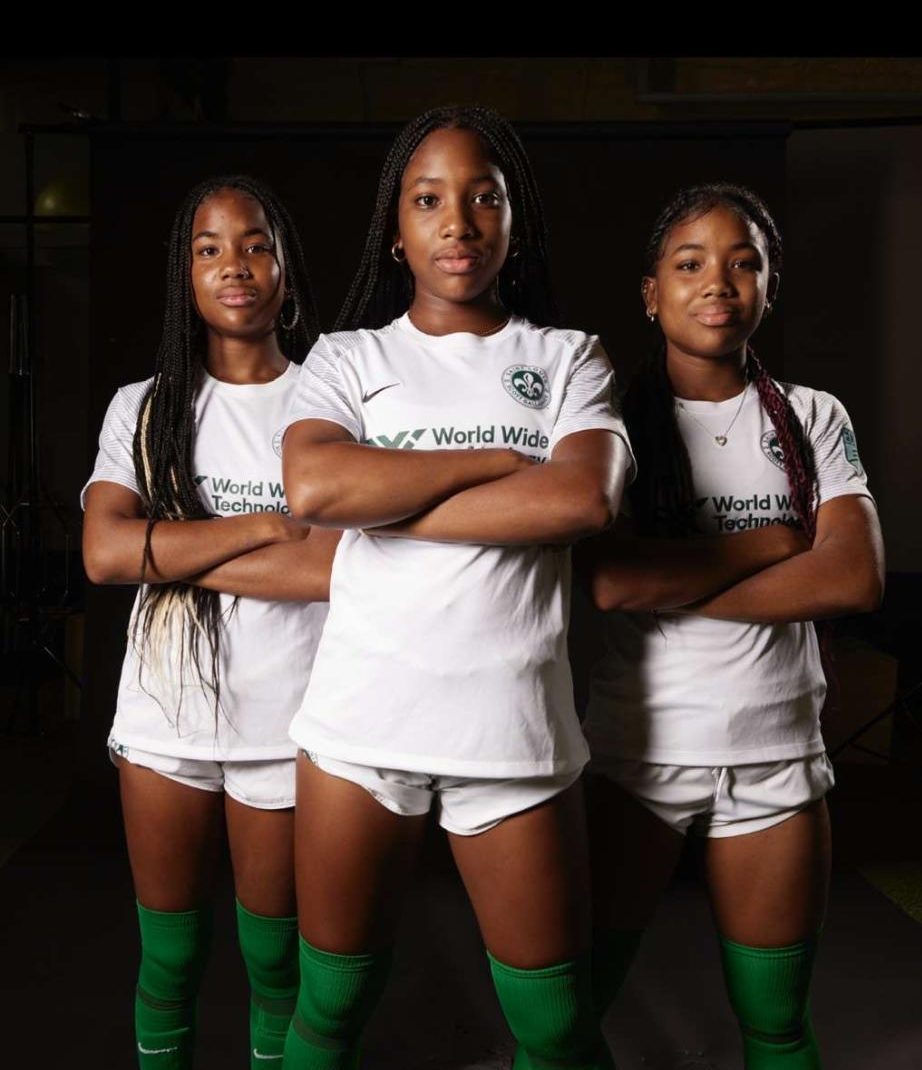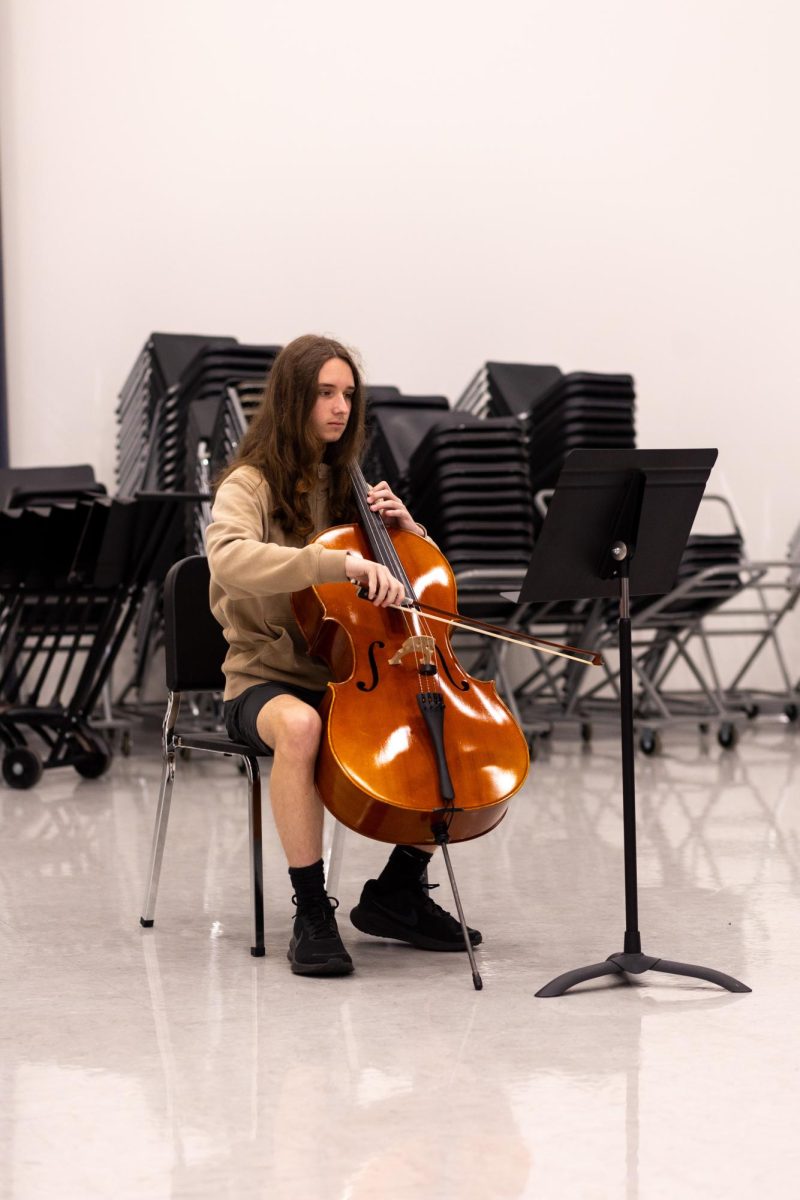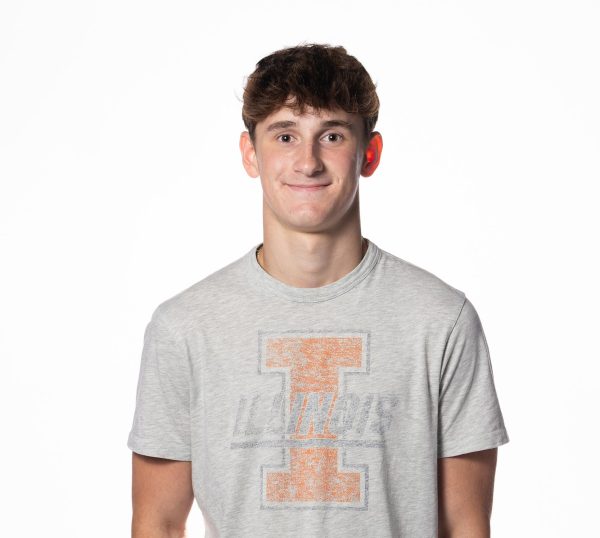Stick to The Status Quo” is not just the title of a catchy “High School Musical” song. It is also a phrase that describes the social normal. The status quo can be thought of as a line in which social conformity and one’s identity are the same. When someone steps out of this line, it reveals a person with a unique identity. In today’s world, it becomes increasingly hard to present oneself as separate from the status quo. However, junior triplets Nephthys Prothro, Balkis Prothro and Fauziya Prothro frequently cross this line with their own unique personalities and lives. Even though they share genetics, they cannot be associated as a single entity.
“People do tend to mistake us often,” Nephthys said. “I get it, but at the same time, I’m a person too, not just a triplet. When people call us ‘the triplets,’ it feels like we’re one person, instead of feeling like individual people.
When their mother, Rosalyn Prothro, found out she was pregnant in early 2006, the last thing that she expected was that she would be having three new daughters in nine short months. Each of those three daughters would grow up to have their own personalities that differentiate themselves from each other more than looks ever could.
“Each of them is unique in their own way, with their own ideas, passions and specific personalities that define who they are,” Rosalyn said. “I am so proud of how their personalities have developed over the years.”
A common saying is that twins or triplets have something called telepathy, an ability to read each other’s mind due to the strong bond of being born and going through life together. Although Balkis, Nephthys and Fauziya can’t necessarily read each other’s minds, the bond that they have is like no other.
Self Identity
“[Being triplets is more than being siblings] because we are the same age and we do all the same things,” Fauziya said. “We are always together and are in the same grade. We were born together, and it’s very much a deeper connection. I have other siblings, but we just understand each other a little bit more.”
For their whole lives, Balkis, Nephthys and Fauziya have had to face a challenge many will never have to face: separating themselves from each other.
“It is sometimes hard to stand out, because people look at us as one,” Nephthys said. “So if I do something good, people will just refer to it as, ‘Oh, it’s the triplets.’ I won’t get my credit for what I did, because it’s just going to be the triplets.”
Common things that can be used to define one’s identity, like sports or clothing styles, are things that the three Prothro sisters share. This makes it even more of a challenge to set themselves apart from one another and break the stereotypes of their similarity.
“I sometimes try to have different friends than my sisters, or we have different music tastes sometimes,” Fauziya said. “I like to just try my own thing and see how I’m feeling by myself, not with my sisters.”
Although sometimes wanting to be seen as separate from their sisters, Balkis, Nephthys and Fauziya use their similarities for their own good. In shared classes, their bond helps push them to strive for better.
“Balkis and I are in the same Anatomy and Physiology class, and we had a competition about who can get the best grade on one of the tests,” Nephthys said. “We are always competitive with each other because it’s fun. We always have somebody to compare things to.”
Competition can sometimes be seen as a trait that drives people away from each other, creating hostile or unfriendly relationships. However, the Prothro sisters have been able to challenge each other and improve themselves and their work.
“I try to do better in school,” Balkis said. “I try to get the best grades because that satisfies me. If we are in a game, I always try to be better than them. I feel like it’s more competitive between us three than it is between anybody else. If we want to beat each other out, I always feel way more motivated to do good.”
Out of the Shadow
When a source of light is blocked by something in the way, a shadow appears. A person can be in a shadow, when someone else is blocking their shine.
“It is sometimes [hard to have my own identity] because if one [sister] is doing better, it’s like you’re in their shadow,” said Nephthys. “[Being in my sibling’s shadows] happens very often, more than it should, and I feel like that’s other people’s fault, not any of ours. It’s not necessarily hard to stand out, but different.”
At the end of the day, Balkis, Nephthys and Fauziya are always sisters. Despite issues and feelings surrounding individuality, their bond that they have trumps all other feelings. Their tight-knit relationship is one that will last their whole lives.
“We have a great connection because we shared a room until we were 10,” Balkis said. “We were born together, so everything we do has been together. We are always together; we always have somebody to be around. Our bond is just special.”
Caption: Juniors Balkis, Nephthys and Fauziya Prothro prepare for their upcoming season playing in the Elite Clubs National League with Saint Louis Scott Galigher. The Prothro triplets have played many seasons together on the same team, and found they have a special connection on the field. “I feel like we have an advantage on the field because we know each other,” Fauziya said.





![School resource officer Rick Ramirez sits in his office. He usually spends little time in his office throughout his day of work, focusing on other issues. “Where our students are, I try to be,” Ramirez said. “Sometimes I get off at 2:45 p.m. when nothing’s going on, or sometimes I get off at 10 p.m. [Those are] my hours.”](https://laduepublications.com/wp-content/uploads/2024/12/Hsiao_20241203_ID_RickRamirez_007-799x1200.jpg)

![Reva poses in front of her home and address plaque. After reuniting with her father and grandparents, she has made many new memories and retained her culture. “We have a lot of Indian cooking going on,” Reva said. “I also like telling people about Indian food, mainly because that’s something that really connects me to [Mumbai].”](https://laduepublications.com/wp-content/uploads/2024/12/At-Home-1200x799.jpg)


Justin J. (Prothro) • Jul 29, 2024 at 8:32 pm
Stay strong 💪🏽
Lerlie Prothro • Jul 29, 2024 at 5:16 pm
So very PROUD of my Granddaughters. Their dad said just today to me that they knew each other in the womb before any of us waiting on their arrival
Knew them so they indeed share a special bond. It is amazing & fun to differentiate their individual personalities which are indeed each unique. From my perspective THEY ARE EACH PERFECT IN EVERY WAY regardless of the distinctions.
MY BABIES🙏🏾🙏🏾🙏🏾 🥰🥰🥰 💪🏾💪🏾💪🏾🙏🏾🙏🏾🙏🏾